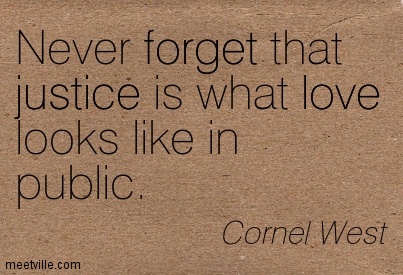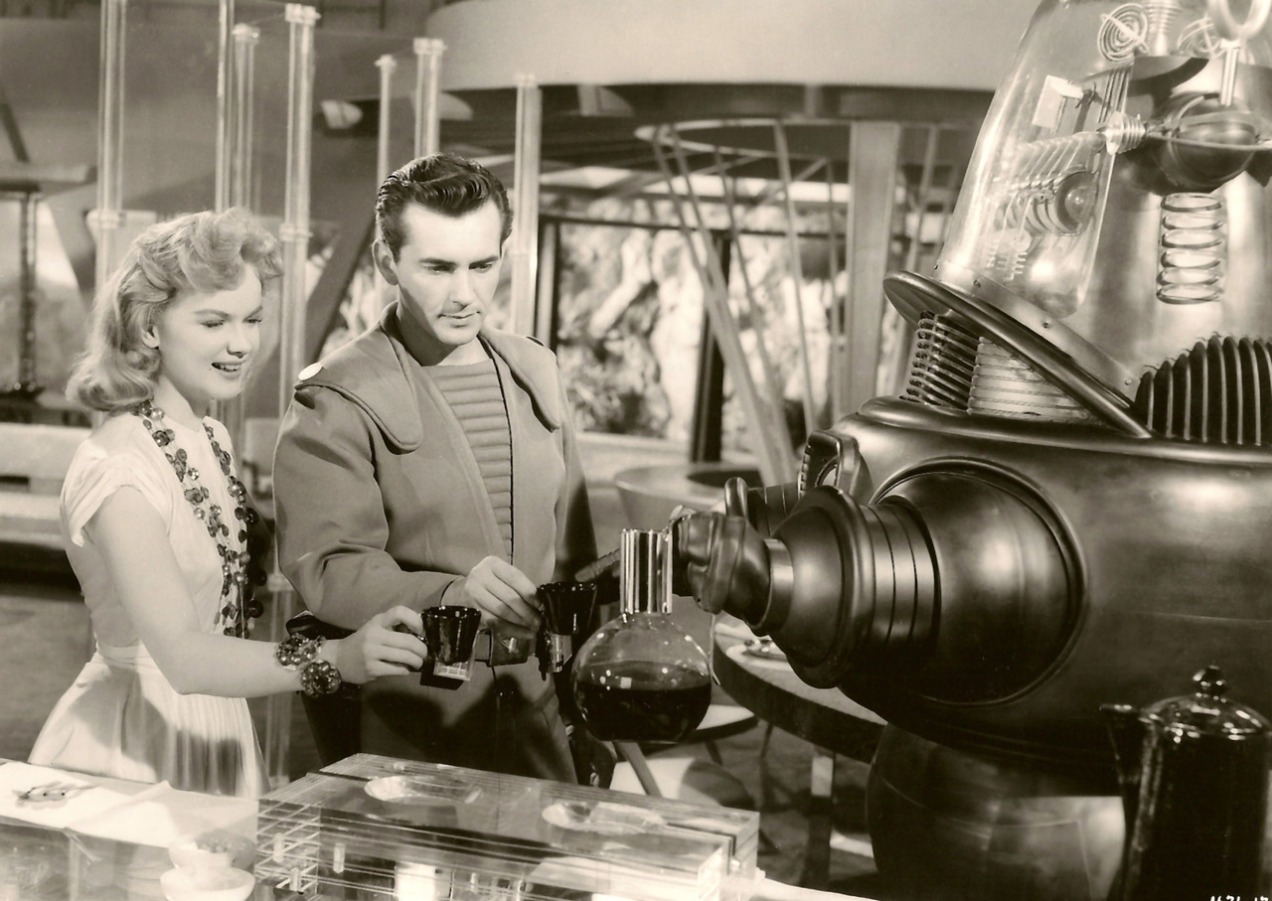The political Left is it in disarray. We could blame it on the establishment, on the privatization of education that has robbed it of its popular intellectual core, we could blame it on espionage perpetrated by “internal security” agencies like CIA’s COINTELPRO program, or we could blame it on the political disenfranchisement of criminals in the world largest prison-state. We could say all of these things and be correct. But despite these obstacles it has always been the nature of the Left to stand up to oppression and exploitation, and in times of crisis it should gain, rather than lose strength. The Left presents an alternative to an unjust world, and while injustice can be carried out under its banner, under conditions such as ours- with inequality rarely so pronounced– it should be flourishing.
Yet it is not, and while external forces are one factor, internal forces within the Left have done their part in paralyzing the movement’s broad appeal and, consequently, broad action. Though much theoretical work is still being done, it has been along lines of particular identity rather than theoretical or class motivations that now drive a majority of people to oppose the “system” as such. When one is oppressed in America, one is oppressed as a racial or religious minority, as an LGBT citizens, as a woman or along another vector of identity outside of the white, male, heteronormative capitalist establishment. Storytelling has come to the fore as a method of critique, where experiences of injustice at the hands of any number of social institutions (the police not least among them) are shared from a first-person perspective.
On the one hand this is a very good thing, because we’re collating more and more experiences “straight from the tap” so to speak, which should allow us to identify (and respond) to problems more quickly and intelligently. But, on the other hand, this method has paradoxically re-essentialized factors of identity like race and gender as they are the foundation for the source of the critique. So when I (a white, male heterosexual myself) read a first-person account of injustice, the effect is twofold: on the one hand I now feel I have a better grasp of the issue than if I had merely read academic articles, yet I am also hesitant to act on this understanding because it may not be my place.
But this doesn’t merely apply to white males. White women have sometimes experienced this in relation their non-white peers, non-white men with their female peers and straight non-white women sometimes will sometimes experience it with non-hetero peers (or the other way around, considering that some in the feminist community do not believe trans subjects can be properly called “women”). The pattern continues in many permutations. The point is that we are playing a complicated game of political Twister, all of us bending over backwards to try and accommodate each others identities into the society in which we live currently. We speak of micro-aggression endlessly without giving concrete alternatives to the macro-aggressive structures that engender it. Though storytelling has enhanced the richness of our critique, without the unifying force of a clear alternative it has also narrowed our perspective. This focus on micro-aggression and immediate experience has given rise to a Left culture of blame, where instead of imagining political solutions to radically change society, we deliver hyper-personal moral prescriptions in the hopes of establishing equality under such systems as we currently have.
Perhaps this feature of dissent mirrors the attitude of the politicians who have sculpted our political mindset: Politicians in our era have become the caretakers of capital rather than leaders with concrete ideas for society’s progress. The most dangerous ideas Democrats have are not ideas that will change society or bring it forward, but that might simply halt the advance of Capital’s encroaching power.
The problem here is not storytelling itself as a method of critique- it is the lack of a broader context for these stories to form building blocks for positive, universal social movement, a story for our stories so to speak. To achieve that we must acquire the theoretical tools necessary for proposing an alternative vision of society; tools that do not deny storytelling, but transmute the raw psychological material of our narratives into a force for change.
The Veil of Ignorance
It may seem counterintuitive at this point to introduce an old dead white guy as a figure of sympathy but John Rawls, an American political philosopher of the 20th century, merits our attention. Rawls has by no means been abandoned by the political establishment- his writings still find traction among the more liberal members of the supreme court, and he even used to dine with President Clinton regularly to discuss (one assumes, though perhaps they were both Friends enthusiasts) matters of policy. However, though his thought remained important to the liberal establishment, that establishment’s interpretation of it has typically been quite narrow.
Rawls’s signature thought experiment is known as “the original position,” a conception of the political subject outside of society as such, where one considers the structure of society behind a “veil of ignorance,” removed from personal conditions of class, race or gender among other things (like natural talents). From this position, Rawls says, we should imagine that we are going to enter the world, but without any knowledge of where or as whom. As the “pure” political subject we should be trying to stack the odds in our favor by stacking the odds in everybody’s favor, as the conditions into which we are born are essentially random. Nobody is capable of pressing for advantages for a particular faction of the citizenry because they cannot know the identity they will receive.
Now, let’s take a step back because I realize that this may seem like a way of pushing identity aside as an issue to make way for “politics proper.” Far from it. Though Rawls encourages us to see society as subjects detached from a particular identity, this is only necessary because in the concrete world everybody is attached to a particular identity that determines their role in society. The point of the original position is not to deny the importance of identity, but rather argue that discrimination (or favoritism) on the basis of identity is categorically unjust, and to give opponents of discrimination a method for shared critique. When we face statistics regarding the racially determined nature of stop and frisk (LINK), or police killings, or employment, or merely the hugely skewed distribution of wealth we know they are unjust, but the original position gives us a method for articulating exactly why it is so. They are unjust because, if we consider every subject of a society to have equal political importance, then systemic discrimination amounts to exactly the sort of stance it is insane to defend from the original position. If we consider it possible that we ourselves might have been born belonging to a different race or class, then we take slights against members of those communities as being in some way slights against ourselves, as the distinction between our identities is essentially arbitrary, not a matter of choice.
Also important to note here is that Rawls himself was acquainted with oppression. Though he was a straight white dude, he was born in 1921 in Baltimore and witnessed first hand the unjust nature of his society, including his hometown’s endemic crime and poverty. He was likewise afflicted by the horrors of WWII, which he fought in, and as a statistician in addition to being a philosopher, realized all too well the irrelevance of the American rags-to-riches story in most people’s lives. Rawls meant to counter the radical injustice that permeated American liberalism by giving egalitarianism the tools to argue within it. For my own part I am doubtful if liberalism itself can be saved by his influence, but the egalitarian tools are useful in their own right.
The general idea of the “original position” is to prioritize equality. It reflects the fact that the conditions of our birth are random- that we are endowed with equal significance as conscious individuals despite our arbitrary fates. The current distribution of wealth in the US reflects exactly the sort of conditions the experiment is meant to critique. Inequality has taken root partially through many Americans belief that they will one day “make it” and so have no need for a social safety net, but statistics show they will occupy the same relative position in their lives (which in turn will be similar to the lives of their parents) more often than not. The real strength of the critique is that it allows us to radically reconsider our position in the society we occupy, but to do so intelligently we need the stories of those who have seen things from a different point of view. Our re-imagining must be informed to construct a coherent story for a parallel life.
Blind Storytelling
To be sure, the interpretation of Rawls I’m giving you is hardly the mainstream opinion, nowadays at least. However, Rawls was a man who grew up in the age of FDR, who had no absolute faith in capital, who didn’t think that strong social programs had no future in America. Most “centrists” or even liberals today would see Rawls egalitarian criterion for justice as being radical, and comparatively it is. One could technically use the original position to argue against a principle like affirmative action as it provides a specific “advantage” for non-whites, but this is to miss the forest through the tress. Using Rawls to argue against the “reverse racism” that paranoid conservatism proposes is to ignore the much larger structural inequalities that make a program like affirmative action necessary.
Rawls must be contextualized within the bigger picture of American society, where historical, political, and economic forces have worked in concert to disenfranchise large sections of the population. Employed as a method for proposing a new society the original position would only work for Gilligan and the islanders, but employed as a method of critique, for declaring injustice, it is much more useful. But we have to know what injustice looks like, feels like, before we can point it out.
And this is the point of putting ourselves in each other’s shoes, insofar as such a thing is possible: it gives us the experience of injustice, not just the facts surrounding it. Such experiences can only be translated to others, not had directly, but it is a process of making society more conscious rather than waiting for it to erupt into perfect consciousness. From a distance, it may be possible for me to think (from police reports) that the high number of police killings is merely an unfortunate side effect of a just system, wherein black and white alike are both subject to punishment. Yet if I am willing to expose myself to the stories of those who have witnessed police oppression first hand, then when I put myself behind “the veil,” so to speak, and make my considerations of justice, I approach the subject with that new, critical knowledge that informs the potential life I could/could’ve been given. My conception of abstract justice is informed by the concrete experiences of injustice to which I am opposed.
In some ways none of this is new information indeed for many its the basic theory behind, well, not being a racist. By considering others’ experiences. The reason I think its valuable to integrate this idea with the Rawlsian conception of justice is that it allows us to unify these critiques by setting a universal standard for what injustice entails. This standard is not meant to undo the work of others, but to strengthen a whole spectrum of critiques, not limited to critiques founded in identity but also along lines of class as well as critiques of an increasingly authoritarian state, the power base of which rests in massive disparities of economic and political power. When we talk about synthesizing perspectives to create a unified vision of resistance, it seems to me that a unified conception of justice is critical to that, and the Rawlsian conception supports the dialogue that is already occurring, while also providing a vision of what a just, and equal, world could look like.
Because the thing is that an occurrence or individual that may signify progress towards equality for some will signify exploitation for others. Take Hillary Clinton, for instance. Mainstream feminists have made of Ms. Clinton a sort of wonder-woman politico, like Margaret Thatcher moved about three inches to the left, interpreting her success as indicative of the enormous social progress made by and for woman in the last couple of decades. Even as late as the 1980s a female Secretary of State would have been unthinkable, but then again, the same might be said for mass surveillance and drone strikes, both of which have happened on her watch. People forget that Ms. Clinton was also on the board of directors for Wal-Mart, which carries similar political sway but at the opposite end of the spectrum. Yet, on the left, fractured as we are by a multiplicity of deeply differing perspectives lacking a common vision, we have become all too ready to take whatever little victories we can. In this way Hillary Clinton, a woman arguably guilty of war crimes and a willful participant in the worst of capitalism’s exploitation, has somehow become an idol.
So is it any surprise that Hill-dog is grooming herself for the 2016 candidacy? No, as the President’s role has been reduced to the figure of “national celebrity” the candidates’ symbolic, rather than practical or political, significance has become their most important figure. Obama’s candidacy was framed within the mythos of the “first black president”- but its become clear that this hasn’t translated into the messianic progressive figure the Left was hoping for to salvage the American political landscape. Obama’s being black has not made his policies any better or worse like every candidate he failed to deliver on his promises because he is merely part of a larger establishment antithetical to actual progress. Racial tensions, far from being alleviated, have reached a crescendo due to police violence that he has consistently deflected criticism of with calls for “understanding.” Yet he remains a sort of ideological linchpin for many black citizens in America, proof that on occasion the system can work. In a way they are right, the system does work not even being black can make a politician deal frankly with the American people to provide meaningful change.
What I have said of course does not apply to the whole of the Left, and really I am including liberals who are deterred from radicalism by symbolic victories within the establishment. The hope invested in figures like Obama and Clinton comes from a place of real political dissatisfaction with the white male establishment, but as we avoid confronting the system of power that has secured this caste and instead grapple with the skin-deep significations by which we know the oppressor, we end up putting band-aids on gaping wounds. The illusion of progress allows concrete injustice to flourish. The culture of political celebrity has proved a powerful opiate for the masses because it appeals to the direct sense of injustice we experience as we experience it. It will require a principle beyond our individual experiences to break the addiction.
Radical Rawls
Rawls also notes another principle, the maximin principle, which says that some inequality is acceptable if it raises the well-being of the many, so that the least well-off are not harmed. This may seem like a gateway to troubling economic propositions after all, what idea was behind the trickle-down theory if not “give more wealth to those on the top so that they might raise those on the bottom”? The same could be said of corporate bailouts. But this fear should be alleviated for two reasons: A) top-down economics have proven demonstrably not to help those at the bottom because those at the top will inevitably horde surplus wealth for themselves, and B) it fails to account for the fact that a disparity of power is itself a public harm. Such a disparity inevitable leads to those on the top attempting to consolidate their power and retain it at the expense of those they hold power over, as in point A.
The centralization of power- economic or political- into the hands of the few by its very nature leads to exploitation as power is never voluntarily given up to those who criticize it, it is instead exercised against them to enforce consent. It leads to philosophical, intellectual harms that can not be negate through surplus material wealth- harms like censorship, imprisonment (a loss even under good conditions), and humiliation. This is not to mention the physical brutalities that inevitably follow.
Instead we should keep to the democratic core of Rawls’s thought, and use the maximin principle to point out how inequality remains unjustified in our society, how our laws and systems of economic distribution serve to aid the powerful at the expense of the least well off. How better to do this than by sharing the concrete stories of injustice that substantiate the grievance?
Far from dividing us, the force of storytelling the left has equipped itself with provides a necessary part of imagining equality. The veil of ignorance can serve as a way to remove us from ourselves, and reconsider ourselves at a variety of different coordinates in our society. Of course this imagining is imperfect, but if we are waiting for perfect consensus before moving forward than we will be waiting a very long time. Most likely it will never be perfect, but it can be made better by exposing ourselves to honest accounts of injustice and inequality by those who have been most painfully subject to it. In seeing these negatives as though we ourselves might suffer them, we realize the positive goal of expanding equality and well-being to the greatest possible number of people. The fear the experiment provokes must result in a respect for the significance of each subject within our society. This respect for individual experience, rooted in a belief that human lives are universally worthwhile, could prove a transformative force for articulating claims for a more just, and thereby more equal, society.










